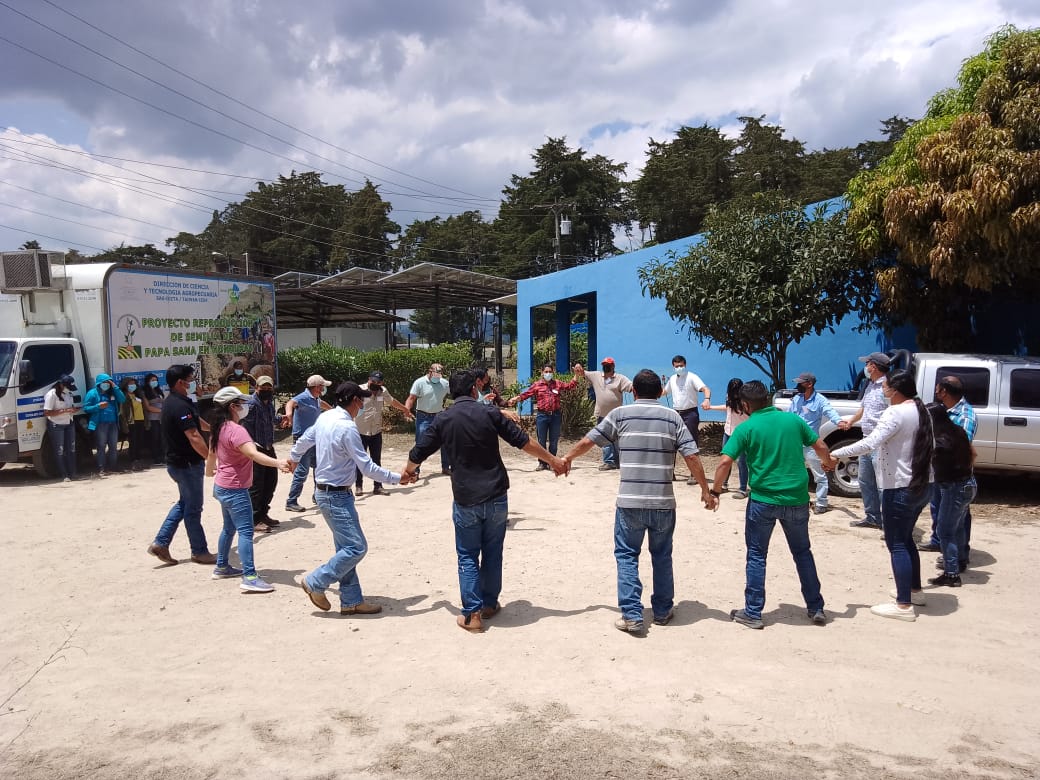Technical Staff Training Workshop for the Establishment of Field Schools

The Current and Emerging Threats to Crops Innovation Lab (CETC-IL) project in Honduras is promoted by the United States Agency for International Development (USAID), Pennsylvania State University (USA), and Zamorano University (Honduras). CETC-IL activities in Honduras are currently focused on potato production and are implemented in the department of Intibucá, in the Central American dry corridor in western Honduras.
To kick start activities, the CETC-IL team visited potato farmers and their fields to discuss and assess the main challenges for potato production in Honduras in terms of pests and diseases. Subsequently, scientists from the International Potato Center (CIP) led a 2-day workshop to train local technicians on the Farmer Field School Methodology (FFS) focused on early and late blight recognition, and the use of CIP’s Handheld Decision Support System (HH-DSS) for early and late blight management.

Technicians from four organizations working on potato production participated in the workshop: (1) the Directorate of Agricultural Science and Technology (DICTA, Spanish acronym) from the Honduran Ministry of Agriculture and Livestock; (2) the Peasant Agroindustrial Enterprise of the Agrarian Reform from Intibucá (ECARAI, Spanish acronym); (3) the Association of Renewed Women from Intibucá (AMIR, Spanish acronym); (4) the private trading company JJ Agro and representatives from the Technical Mission of the Republic of China (Taiwan), who support the Honduran government in potato production. Overall, 37 people (12 women and 25 men) participated in the workshop.

The technicians will use PlantVillage Nuru application for disease diagnosis, along with the participatory techniques learned during the workshop, to train farmers on a more sustainable management of these two important diseases.
Content Credits: Emil Floricia Vasquez - Zamorano University
